


Books in series

Mediated Politics
Communication in the Future of Democracy
2000

Communication and Democratic Reform in South Africa
2001

Media, Markets, and Democracy
1997

The Winning Message
Candidate Behavior, Campaign Discourse, and Democracy
2002

Shaping Abortion Discourse
Democracy and the Public Sphere in Germany and the United States
1998

Information and American Democracy
Technology in the Evolution of Political Power
2003

Media and the Path to Peace
2004

New Television, Old Politics
The Transition to Digital TV in the United States and Britain
2004

Comparing Political Communication
Theories, Cases, and Challenges
2004

New Media Campaign Managed Cit
2005

Evaluating Campaign Quality
Can the Electoral Process be Improved?
2007

The Internet and Democratic Citizenship
Theory, Practice and Policy
2007

Cosmopolitan Communications
Cultural Diversity in a Globalized World
2009

Reality Television and Arab Politics
Contention in Public Life
2009

When Politicians Attack
Party Cohesion in the Media
2010

The Making of a European Public Sphere
Media Discourse and Political Contention
2006

After Broadcast News
Media Regimes, Democracy, and the New Information Environment
2011

Comparing Media Systems Beyond the Western World
2011

Collective Action in Organizations
Interaction and Engagement in an Era of Technological Change
2012

Digital Media and Political Engagement Worldwide
A Comparative Study
2012

Media Commercialization and Authoritarian Rule in China
2012

Shaping Immigration News
A French-American Comparison
2013

Consumer Democracy
The Marketing of Politics
2013

Political Journalism in Comparative Perspective
2013

America's Battle for Media Democracy
The Triumph of Corporate Libertarianism and the Future of Media Reform
2014

News Frames and National Security
Covering Big Brother
2014
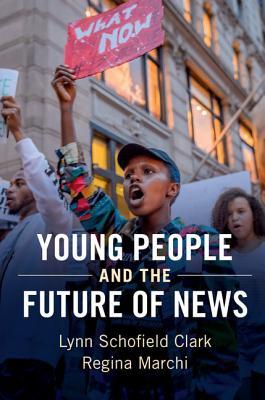
Young People and the Future of News
Social Media and the Rise of Connective Journalism
2017
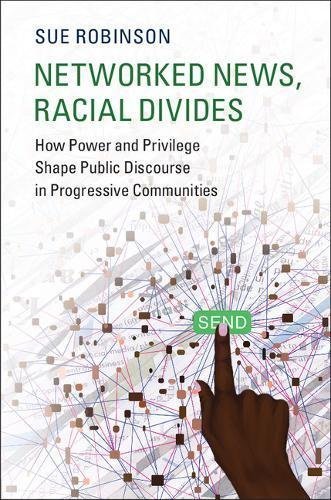
Networked News, Racial Divides
How Power and Privilege Shape Public Discourse in Progressive Communities
2017
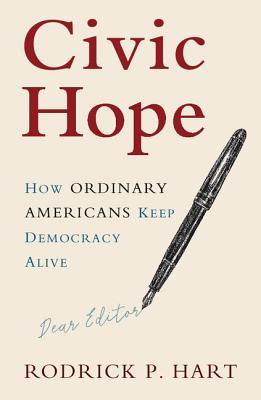
Civic Hope
How Ordinary Americans Keep Democracy Alive
2018
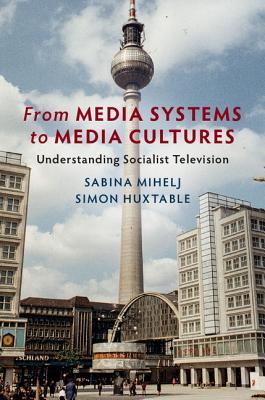
From Media Systems to Media Cultures
Understanding Socialist Television
2018
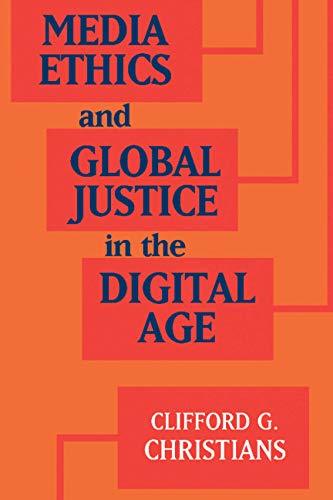
Media Ethics and Global Justice in the Digital Age
2019
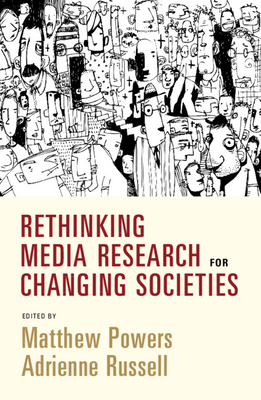
Rethinking Media Research for Changing Societies
2020
Authors

Lynn Schofield Clark is Professor and Chair of the Department of Media, Film and Journalism Studies and Director of the Estlow International Center for Journalism and New Media at the University of Denver. An ethnographer who has studied and worked with diverse U.S. families and young people for more than 15 years, Clark is interested in how the everyday uses of digital, mobile and social media shape peoples’ identities and aspirations, particularly in the context of widening income inequality in the United States. She teaches courses in journalism, media and intersectionalities, and media studies. Clark is also a member of the Research Team YELL (Youth Engaged in Leadership & Learning), which is part of the University of Denver’s Bridge Project under the University’s Graduate School of Social Work. Clark is coauthor of Young People and the Future of News: Social Media and the Rise of Connective Journalism, published by Cambridge University Press in 2017 with Associate Professor Regina Marchi of Rutgers University. The book traces the practices that are evolving as young people come to see news increasingly as something shared via social networks and social media rather than produced and circulated solely by professional news organizations. It’s been described as “original,” “insightful,” and, by National Public Radio’s Lulu Garcia-Navarro, as “a cautionary tale” for journalists and journalism. Clark’s book The Parent App: Understanding Families in a Digital Age (Oxford University Press, 2012), was named an Outstanding Academic Title by Choice, and a nice summary of the book can be found in the University of Denver’s magazine. Clark’s first book, From Angels to Aliens: Teenagers, the Media, and the Supernatural (Oxford University Press, 2003/2005) explored how young people from varied (and no) religious backgrounds interpreted popular culture’s stories of the supernatural in relation to religious and spiritual understandings. It received the National Communication Association’s Best Scholarly Book Award from the Ethnography Division. She is also co-author of Media, Home, and Family (Routledge, 2004), which explored how families establish media policies and how those policies relate to family identity-construction practices. She is editor of Religion, Media, and the Marketplace ( Rutgers, 2007), and co-editor of Practicing Religion in the Age of the Media (Columbia University Press, 2002), and a co-editor (with Erika Polson and Radhika Gajjala) of a volume on media and class. Her work is also published in the Journal of Communication, the International Journal of Communication, Journalism, Communication Theory, Critical Studies in Media Communication, New Media & Society, Feminist Media Studies, the Journal for the Scientific Study of Religion, and in several other journals and edited volumes. Clark’s research has been cited in The New York Times, Chicago Tribune, LA Times, Boston Globe, Hollywood Reporter, the Independent (U.K.), and in other publications; featured on CNN, NPR, BBC-Radio, and PBS; and has been presented before audiences at Harvard, Oxford, University of Copenhagen, Haifa University, RMIT (Australia), the University of North Carolina, Indiana University, the American Academy of Religion, the International Communication Association, the American Anthropological Association, the Association of Education for Journalism and Mass Communication, and in numerous other national and international venues. She is Vice President/President Elect of the international Association of Internet Researchers and a past President of the International Society for the study of Media, Religion, and Culture. She was a Visiting Professor at the University of Copenhagen in 2009 and in 2014, Visiting Fellow at the Digital Ethnography Research Center at RMIT (Melbourne, Australia) in 2014, a 1997-98 Louisville Institute Dissertation Fellow and a 1998 nominee to the Harvard Society of Fellows. She serves on the editorial board
Research Professor Emeritus of Communications Professor Emeritus of Media Studies Professor Emeritus of Journalism Christians is the former director of the Institute of Communications Research and chair of the doctoral program in communications, positions he held from 1987-2001 and from 2007-2009. He has been a visiting scholar in philosophical ethics at Princeton University, a research fellow in social ethics and also a visiting scholar at the University of Chicago, and a PEW fellow in ethics at Oxford University. He has a Doctor of Letters D.Litt Honoris Causa Degree from Marquette University and an honorary Doctor of Humane Letters degree from Emerson College. He was a Charles H. Sandage Distinguished Professor, has won six teaching awards, and is a faculty member in the Fulbright Specialist Program. His research is in the philosophy of technology, communication theory, and media ethics. A Festschrift Ethics and Evil in the Public Sphere has been published in his honor. He is a founding member of the International Ethics Roundtables with venues in Stellenbosch, Dubai, Delhi, and Beijing. He has lectured or given papers or taught classes in thirty-five countries. He is listed in Whos Who in America, Whos Who in the World, International Whos Who in Education, and Outstanding Scholars of the 21st Century: Communication Ethics. The Carl Couch Center for Social and Internet Research offers annually the Clifford G. Christians Ethics Research Award. He has been given academic awards such as these: Ethics Scholar Award (Lambda Pi Eta Honor Society, Duquesne University; the AEJMC Presidential Award for distinguished service and AEJMCs Paul J. Deutschmann Award for Excellence in Research; James A. Jaksa Ethics Scholar in Residence; Ralph Crossman and FIRST Scholar awards (University of Colorado); Fellow at the University of Stellenbosch Institute for Advanced Study; Honor Medal for Distinguished Service in Journalism (University of Missouri); Best Edited Book of the Year (with Lee Wilkins, Handbook for Media Ethics); Kappa Tau Alpha Award for Normative Theories of the Media; Distinguished Scholar Award from the National Communication Association; James W. Carey Media Research Award; First Place Faculty Research Paper award (with Stephen Ward, from Media Ethics Division, AEJMC); Louis Forsdale Award as Outstanding Educator in the Field of Media Ecology; Charles Colson Award for Outstanding Contribution to Ethics, Media and Culture; and the Guido H. Stempel III Award for Journalism and Mass Communication Research.



Louis Sandy Maisel L. Sandy Maisel is the William R. Kenan, Jr. Professor of Government and founding director of the Goldfarb Center for Public Affairs and Civic Engagement at Colby College, where he has taught since 1971. He is the author or editor of 17 books including American Political Parties and Elections: A Very Short Introduction and Evaluating Campaign Quality: Can the Electoral Process Be Improved? From Obscurity to Oblivion: Running in the Congressional Primary chronicled Maisel’s unsuccessful bid for the Democratic nomination for Congress in Maine’s First Congressional District in 1978. His published articles have appeared in many political science journals and anthologies, including the American Political Science Review, American Journal of Political Science, the Journal of Politics, and the Legislative Studies Quarterly. Maisel has served as president of the New England Political Science Association, twice a member of the Council of the American Political Science Association, and chair of the APSA’s research sections that focus on Political Organizations and Parties and on Legislative Studies. Maisel and his wife, Patrice Franko, who is professor of economics and international studies at Colby, live in Rome, ME. http://www.politico.com/arena/bio/san...